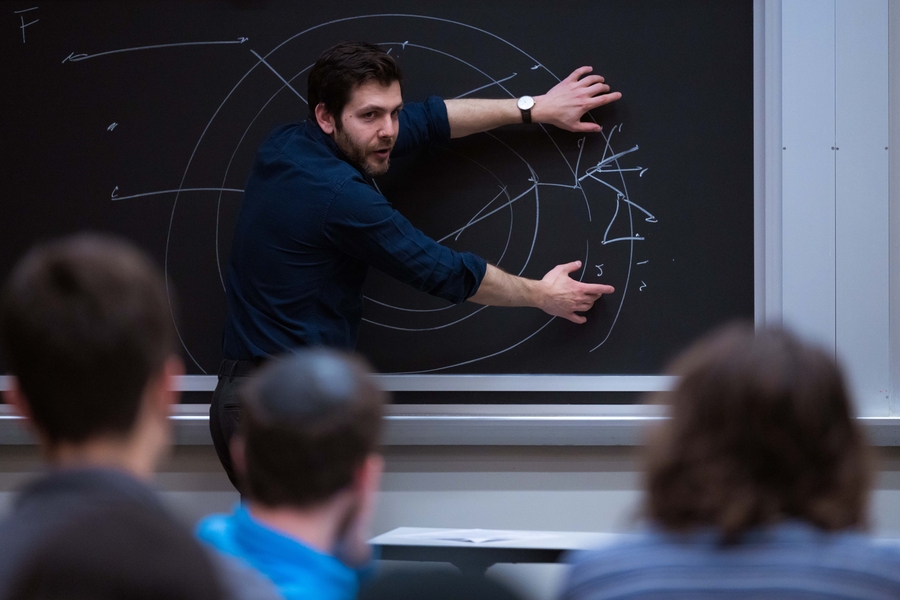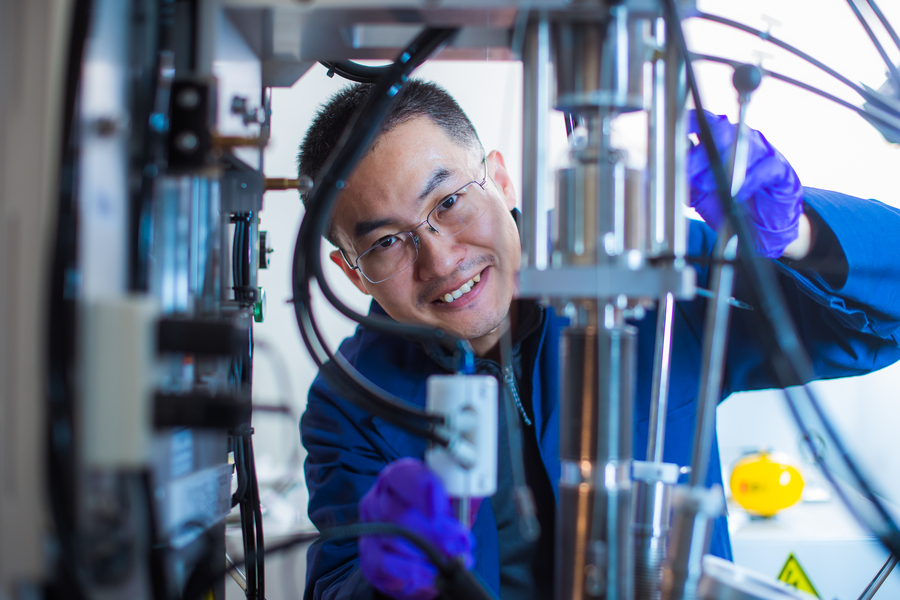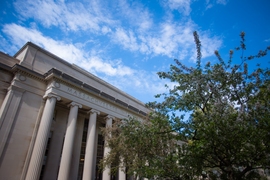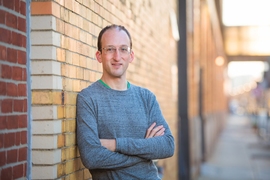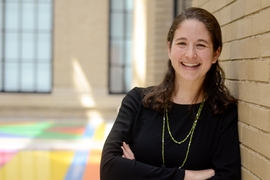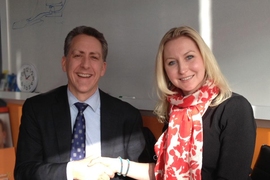Each year, MIT’s School of Engineering gives the Junior Bose Award to a junior faculty member who has made outstanding contributions as an educator. The award is given to a member of faculty who is up for promotion from assistant professor to associate professor without tenure. The 2023 Junior Bose Award has been given to two outstanding educators: Jacob Andreas, the X-Window Consortium Professor in the Department of Electrical Engineering and Computer Science (EECS), and Mingda Li, the Class of 1947 Career Development Professor in the Department of Nuclear Science and Engineering.
“Jacob and Mingda are incredibly gifted educators who have made a lasting impact on their students,” says Anantha Chandrakasan, dean of the MIT School of Engineering and the Vannevar Bush Professor of Electrical Engineering and Computer Science. “The enthusiasm they have for the subjects they teach is infectious. They are both committed to finding new, engaging ways to teach students about incredibly complex ideas.”
Andreas and Li were given their award in February during a meeting of MIT’s Engineering Council. They both will be promoted to associate professor without tenure effective July 1.
Jacob Andreas
During his second semester as a faculty member at MIT, Jacob Andreas, who studies machine learning for language understanding, was tasked with teaching class 6.8610 (Natural Language Processing) (formerly 6.864). The course had most recently been taught in 2017 by Regina Barzilay, the School of Engineering Distinguished Professor for AI and Health in EECS. The intervening three years were transformative for the field of natural processing, opening new possibilities for how the course could be taught.
Language understanding problems that previously required specialized machine learning models could be solved with a set of standard neural network components. As a result, the scope of topics the introductory course could cover expanded drastically. Andreas and his co-instructor Jim Glass, senior research scientist at MIT’s Computer Science and Artificial Intelligence Laboratory, faced the challenge of finding a balance between teaching classic methodologies for natural language processing and focusing on newer techniques. The challenge, for Andreas, was exciting.
“It was a lot of fun — especially as a new faculty member — starting with Regina's amazing existing course notes and rethinking how to describe this field from the bottom up: which pieces of the classical toolkit and the deep learning toolkit actually mattered, and how to best think about their relationship,” he says.
This “bottom up” approach has informed Andreas’ teaching in other subjects he teaches, including class 6.3900 (Introduction to Machine Learning) and 6.1010 (Fundamentals of Programming).
“Rather than standing in front of a room and saying, “here's a big idea, and here are three important special cases," I start by guiding students toward a deep enough understanding of the special cases like programs or sentences that they can use to connect the dots themselves,” Andreas explains.
Andreas draws inspiration from the teaching style of his PhD advisor Daniel Klein, professor at the University of California at Berkeley. Klein remains one of Andreas’s top sources for problem sets and exercises that help students learn concepts and ideas themselves. His approach to teaching was also informed by the late Professor William Theodore de Bary, who treated students as though they were colleagues rather than pupils.
“This model of the classroom as a place where teachers and students are jointly trying to come to an understanding changed the way I think of what a professor should do. And it's been especially useful at MIT, where students are constantly asking me questions I don't immediately know how to answer,” he adds.
Mingda Li
At first glance, the topics covered in class 22.12 (Radiation Matter Interaction) may seem daunting. When Mingda Li started teaching the class, he was determined to infuse its syllabus with excitement and fun.
“By the class name, it may sound boring and even a bit scary since it has the word 'radiation' in it, not to mention it is a required core class for Doctoral Qualifying Exam. But I set out to turn what some people may consider boring content into something fun by overturning a decades-long tradition of how the class could be taught,” explains Li.
Throughout the course, Li poses a series of fun questions to teach students often complex topics. Questions like, “How old is this Egyptian relic?”, “Can we turn lead into gold?”, and “Why should you bring an umbrella if you see a cloudy sky in Boston in September?” to help students understand complex ideas such as radioactive decay, neutron transmutation, and Bayesian statistics.
Li has managed to introduce dense, complex topics in a fun and engaging way without sacrificing the course’s rigor.
“I want to give our students a holistic, but still rigorous understanding of the field. Rather than try to cover all the content in an 800-page book on the matter-radiation intersection, I focus on the important, essential elements with a level of rigor and clarity on how these topics relate to the whole field,” he explains.
After taking his class, students consistently praise Li’s warmth, approachability, and enthusiasm for the subjects he teaches. Li has displayed these attributes throughout his entire academic career. As a young middle school student, he helped his peers learn difficult concepts. This carried through to his doctoral studies at MIT, where he won two teaching assistant awards.
“In a highly competitive academic environment, people sometimes focus more on competition than collaboration, and this competition can induce tension. I try to nurture an environment to solve some tough problems that can be solved by efficient collaboration,” adds Li.
Li credits many of his own teachers for shaping his approach to education. From his middle school math teacher Ms. Cui to MIT faculty, including professors Gang Chen, Mehran Kardar, Hong Liu, and the late Institute Professor Mildred "Millie" Dresselhaus, Li has learned to approach teaching with compassion and humor.

